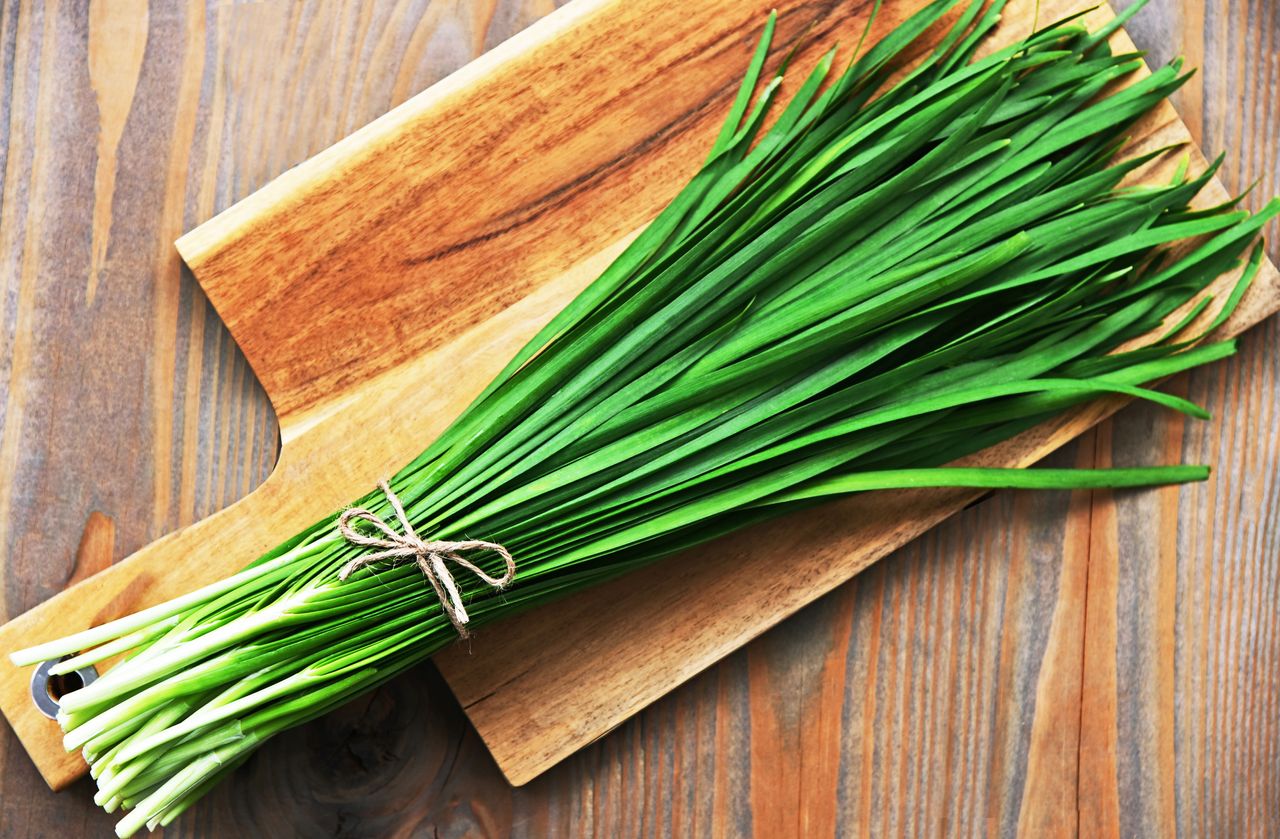
Chives are more than just a garnish for your baked potato. These slender green herbs pack a punch in both flavor and nutrition. But what exactly makes chives so special? Chives belong to the same family as onions, garlic, and leeks, offering a mild onion-like taste that enhances many dishes. They are rich in vitamins A and C, providing a healthy boost to your meals. Chives also contain antioxidants that help fight off free radicals. Whether you're a seasoned chef or a home cook, knowing a bit more about chives can elevate your culinary game. Ready to learn some cool facts about this versatile herb? Let's dive in!
Key Takeaways:
- Chives are not only delicious but also packed with nutrients and health benefits. They can be easily grown at home and have some fun and surprising facts, like being used as a natural insect repellent.
- Chives have been around for thousands of years and have been used for their medicinal properties. They are versatile in the kitchen and have interesting folklore, like being believed to have magical properties in medieval Europe.
What Are Chives?
Chives are a popular herb used in various cuisines worldwide. They belong to the onion family and are known for their mild flavor and vibrant green color. Let's dive into some fascinating facts about chives.
-
Chives are part of the Allium family, which includes onions, garlic, and leeks.
-
They have been cultivated for over 5,000 years, making them one of the oldest known herbs.
-
Chives are native to both Europe and Asia, thriving in temperate climates.
-
The scientific name for chives is Allium schoenoprasum.
Nutritional Benefits of Chives
Chives aren't just tasty; they are also packed with nutrients that can benefit your health. Here are some key nutritional facts about chives.
-
Chives are low in calories, making them a great addition to any diet.
-
They are rich in vitamins A and C, which are essential for immune function and skin health.
-
Chives contain antioxidants that help fight free radicals in the body.
-
They are a good source of fiber, aiding in digestion.
Culinary Uses of Chives
Chives can elevate the flavor of many dishes. Their versatility in the kitchen is one of the reasons they are so beloved by chefs and home cooks alike.
-
Chives are often used as a garnish for soups, salads, and baked potatoes.
-
They can be blended into butter or cream cheese for a flavorful spread.
-
Chives pair well with eggs, making them a popular addition to omelets and scrambled eggs.
-
They can be used to make chive oil, which adds a unique flavor to dressings and marinades.
Growing Chives at Home
Growing chives is relatively easy, even for those without a green thumb. Here are some tips and facts about cultivating your own chives.
-
Chives can be grown both indoors and outdoors, making them versatile for any living situation.
-
They prefer well-drained soil and plenty of sunlight.
-
Chives are perennial plants, meaning they will come back year after year.
-
They can be propagated by dividing the clumps every few years.
Health Benefits of Chives
Beyond their nutritional value, chives offer several health benefits that make them a valuable addition to your diet.
-
Chives have antibacterial properties that can help fight infections.
-
They contain compounds that may reduce the risk of certain cancers.
-
Chives can help lower blood pressure due to their high potassium content.
-
They have anti-inflammatory properties that can help reduce symptoms of arthritis.
Fun Facts About Chives
Chives have some interesting and lesser-known facts that might surprise you. Here are a few fun tidbits about this versatile herb.
-
Chive flowers are edible and can be used to add color and flavor to dishes.
-
In medieval Europe, chives were believed to have magical properties and were hung in homes to ward off evil spirits.
-
Chives are often used in traditional Chinese medicine to treat various ailments.
-
They are one of the few herbs that can be frozen without losing their flavor.
-
Chives are a natural insect repellent, making them a great addition to any garden.
Chives: More Than Just a Garnish
Chives aren't just a pretty garnish for your baked potato. These slender green herbs pack a punch with their nutritional benefits and culinary versatility. Rich in vitamins A and C, they support your immune system and eye health. Their mild onion flavor makes them perfect for soups, salads, and even scrambled eggs. Plus, chives are easy to grow in your garden or even a small pot on your windowsill.
Beyond the kitchen, chives have medicinal properties. They can help with digestion and have antibacterial qualities. Historically, they were used to ward off evil spirits and bad luck. Today, they add a touch of elegance and flavor to your dishes while providing health benefits.
So next time you see chives, remember they're more than just a garnish. They're a small but mighty herb with a rich history and plenty of uses.
Frequently Asked Questions
Was this page helpful?
Our commitment to delivering trustworthy and engaging content is at the heart of what we do. Each fact on our site is contributed by real users like you, bringing a wealth of diverse insights and information. To ensure the highest standards of accuracy and reliability, our dedicated editors meticulously review each submission. This process guarantees that the facts we share are not only fascinating but also credible. Trust in our commitment to quality and authenticity as you explore and learn with us.


